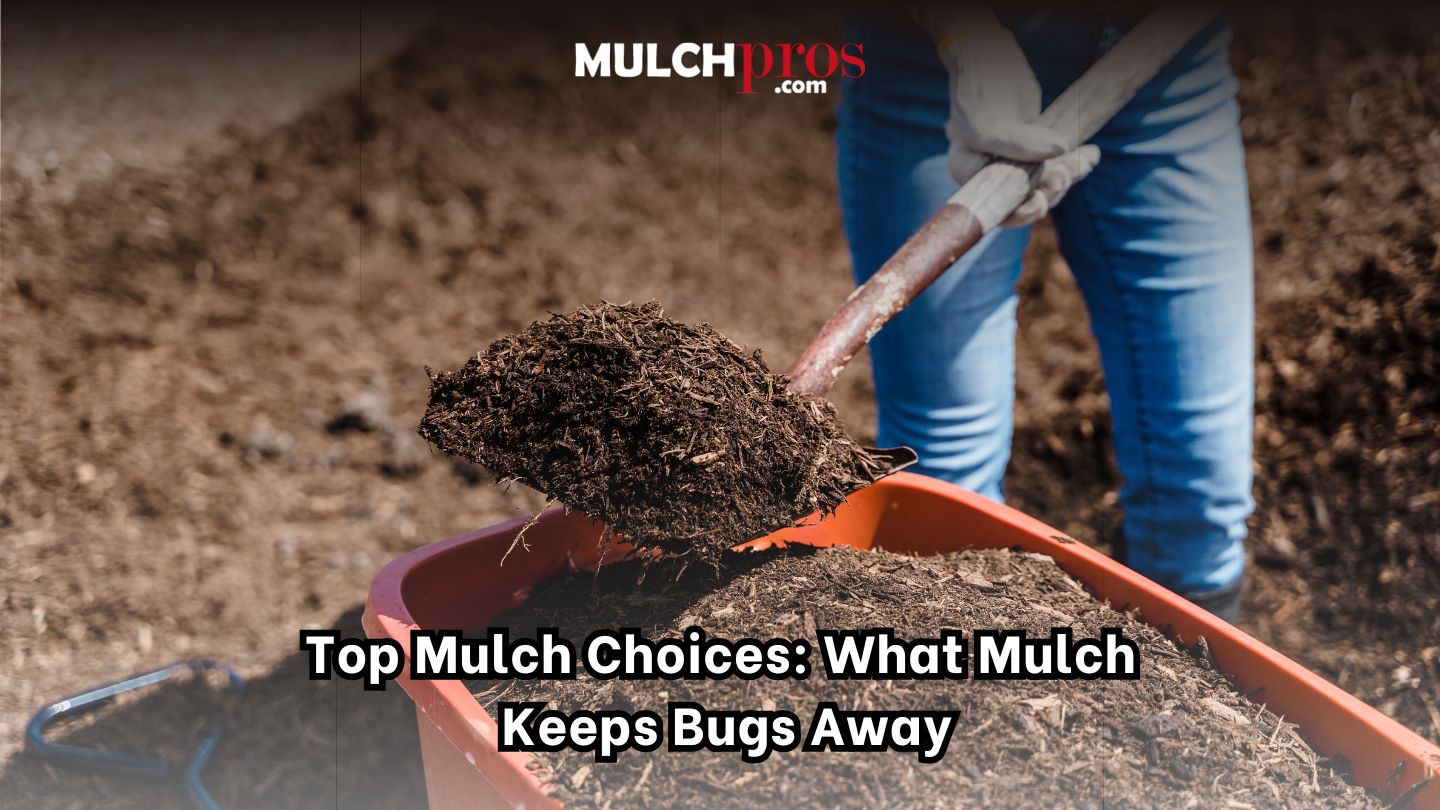Mulch is a great way to keep your garden healthy and thriving, but did you know the right mulch can also help keep pests at bay? Choosing the best mulch not only improves soil quality and retains moisture but also discourages unwanted bugs from invading your garden. In this blog, we’ll explore the top mulch options that protect your plants while keeping pests away.
Key Takeaways
- Cedar mulch is highly effective at repelling pests due to its natural insecticidal properties, enhancing both pest control and soil health.
- Cypress and melaleuca mulches offer durable pest protection and require less frequent replenishment, making them convenient choices for gardeners.
- Integrating insect-repelling plants and maintaining physical barriers complements mulch use, providing a comprehensive approach to pest management.
Cedar Mulch: A Natural Bug Repellent
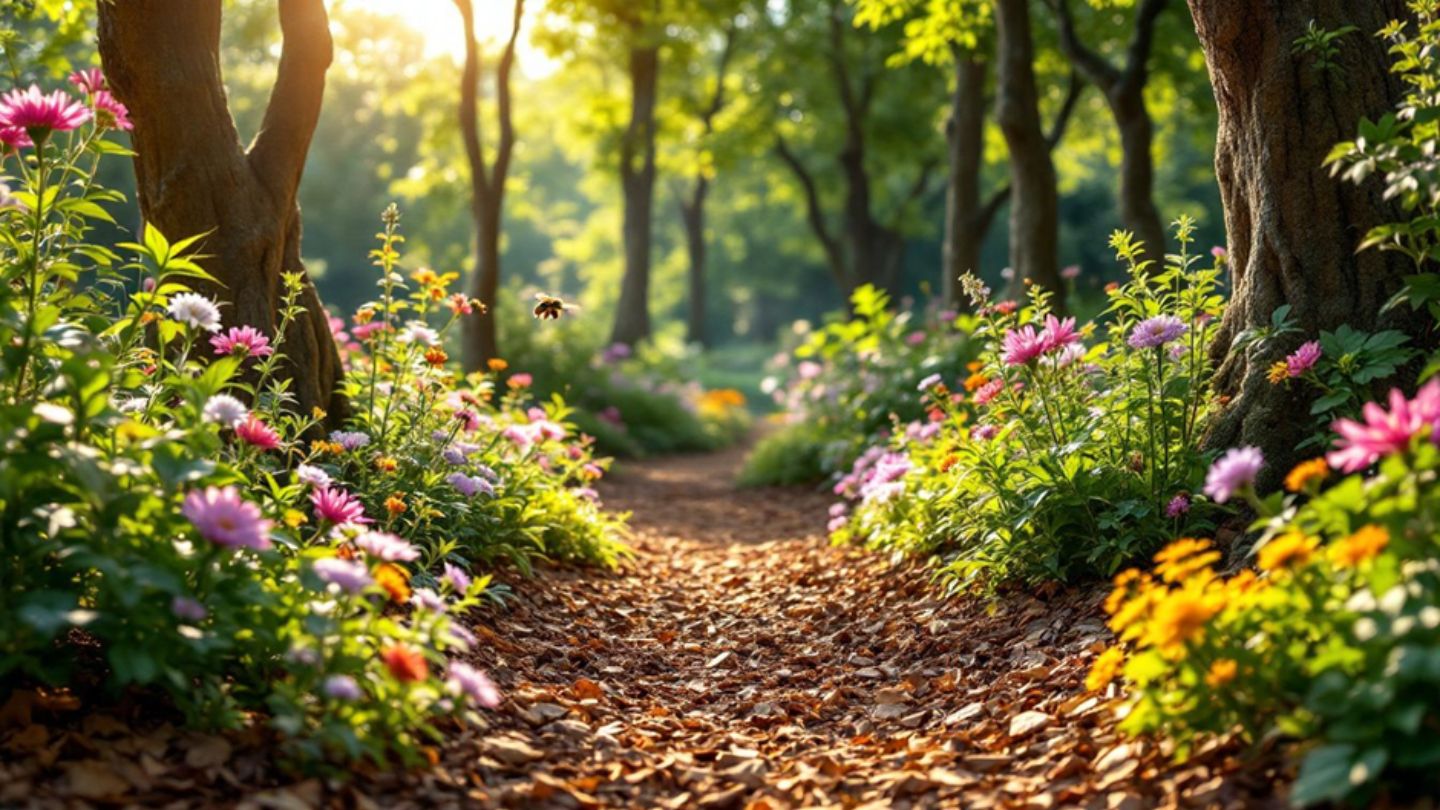
Derived from the wood of cedar trees, cedar mulch is highly respected for its efficacy in warding off insects. The key to its effectiveness lies within the natural compounds it contains, particularly thujone, which is found in both cedar oil and other natural oils present in the mulch. This potent compound not only deters pests but also possesses insecticidal qualities that can kill those who come into contact with it. The robust aroma of cedar acts as a secondary repellent, Ensuring bugs are kept at bay.
Cedar mulch offers more than just protection against unwanted garden visitors. It significantly contributes to soil health by improving both drainage and airflow within the soil structure while simultaneously aiding in retaining adequate moisture levels essential for plant vitality. As such, this multi-beneficial layer provides an indispensable advantage for horticulturists aiming to foster a thriving and pest-resistant landscape.
Benefits of Cedar Mulch
Cedar mulch offers a plethora of advantages for gardens, not only elevating their visual appeal with its striking color and texture but also serving as an organic pest deterrent. This transformation in the garden’s aesthetic is complemented by cedar’s intrinsic properties that repel unwanted insects, thereby safeguarding your plants from pest-related harm.
To fend off pests, cedar mulch significantly aids in preserving soil moisture—which is vital for healthy plant growth. As it gradually breaks down, cedar mulch enriches the soil by boosting its content of organic matter. This enhancement promotes better water retention within the soil, reducing the need for watering and fostering robust and vigorous plants. Cedar mulch indeed presents a comprehensive solution for maintaining and nurturing one’s garden.
Cypress Mulch: Effective Against Many Pests
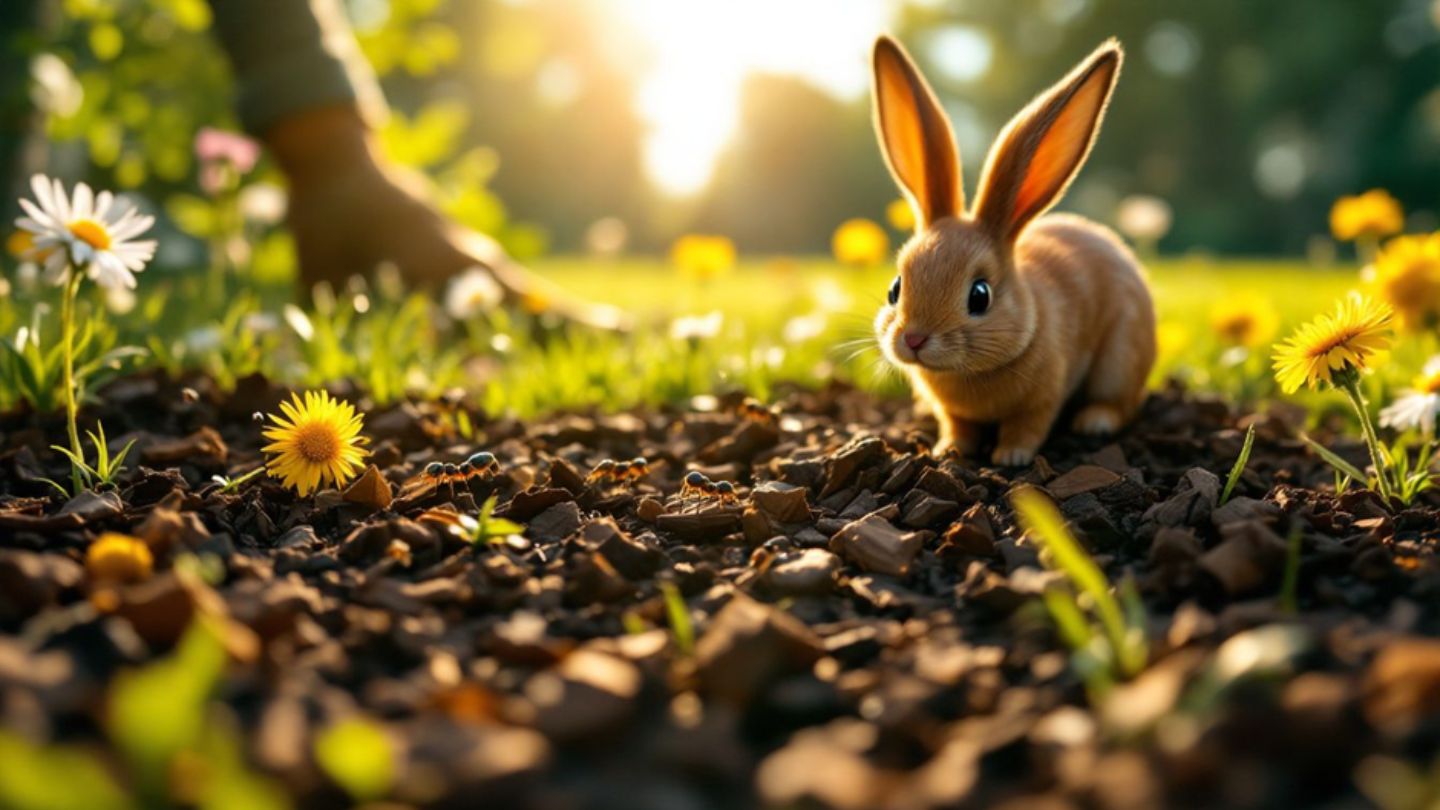
Another outstanding option for gardeners aiming to protect their plants from unwanted creatures is cypress mulch. Renowned for its capacity to ward off various pests, especially termites, this type of mulch emits a potent aroma that deters insects. It’s frequently ranked just behind cedar mulch in terms of its ability to control pests.
The inherent characteristics of cypress not only help in fending off these intruders but also enhance the material’s resistance to decomposition, ensuring it remains an enduring choice within your garden. The long-lasting nature of cypress means less frequent replacements compared with other forms of mulch, providing sustained protection and advantages over extended periods.
Why Choose Cypress Mulch?
Opting for cypress mulch offers multiple benefits. The innate qualities of cypress wood provide a natural deterrent to pests and fungi, ensuring a robust garden ecosystem. This repellence is attributed to the distinctive characteristics of the cypress that discourage pest invasion and enhance resistance to decomposition.
Cypress mulch also stands out for its enduring nature compared with other organic mulches, offering extended sustenance and safeguarding your garden over time. Its slow decomposition rate results in a decreased need for replacement, thereby allowing you more leisure time in a garden devoid of pests.
Melaleuca Mulch: An Exotic Solution
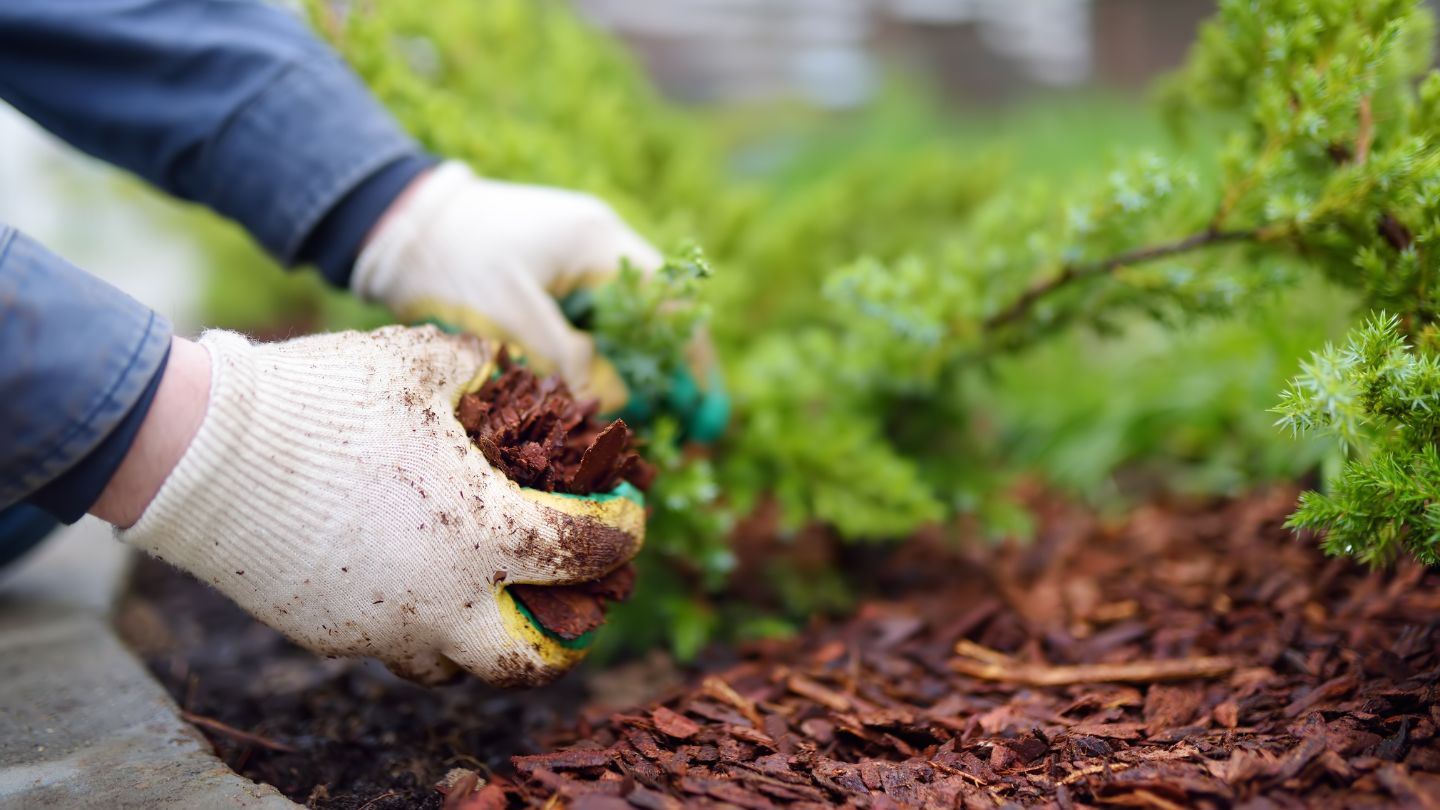
Crafted from the bark of melaleuca trees, this specialized mulch presents an efficient method for managing pests. The robust woodsy scent inherent in melaleuca mulch naturally wards off unwanted critters, particularly termites, while offering a delightful fragrance that garden enthusiasts appreciate but insects find repulsive.
Melaleuca mulch goes beyond merely deterring pests. It also enhances soil quality by boosting aeration and drainage capabilities, which fosters more vigorous plant development. Due to its slow decay process, it serves as a resilient option for sustained gardening applications, minimizing the necessity for regular renewal.
Advantages of Melaleuca Mulch
Utilizing melaleuca mulch in your garden can significantly impede the growth of unwanted weeds, creating a neater appearance and less competition for essential water and nutrients among plants. It plays a crucial role in preventing erosion and enhancing the air circulation within the soil, which are vital elements for preserving robust soil health.
The prolonged durability of melaleuca mulch is another notable benefit. Its slow breakdown means that it continues to deliver advantages over extended timeframes without necessitating regular replacement. As a result, this type of mulch stands out as an economical choice with minimal upkeep requirements for gardening enthusiasts.
Innovative Mulch Options: Cocoa Bean Shells and Straw
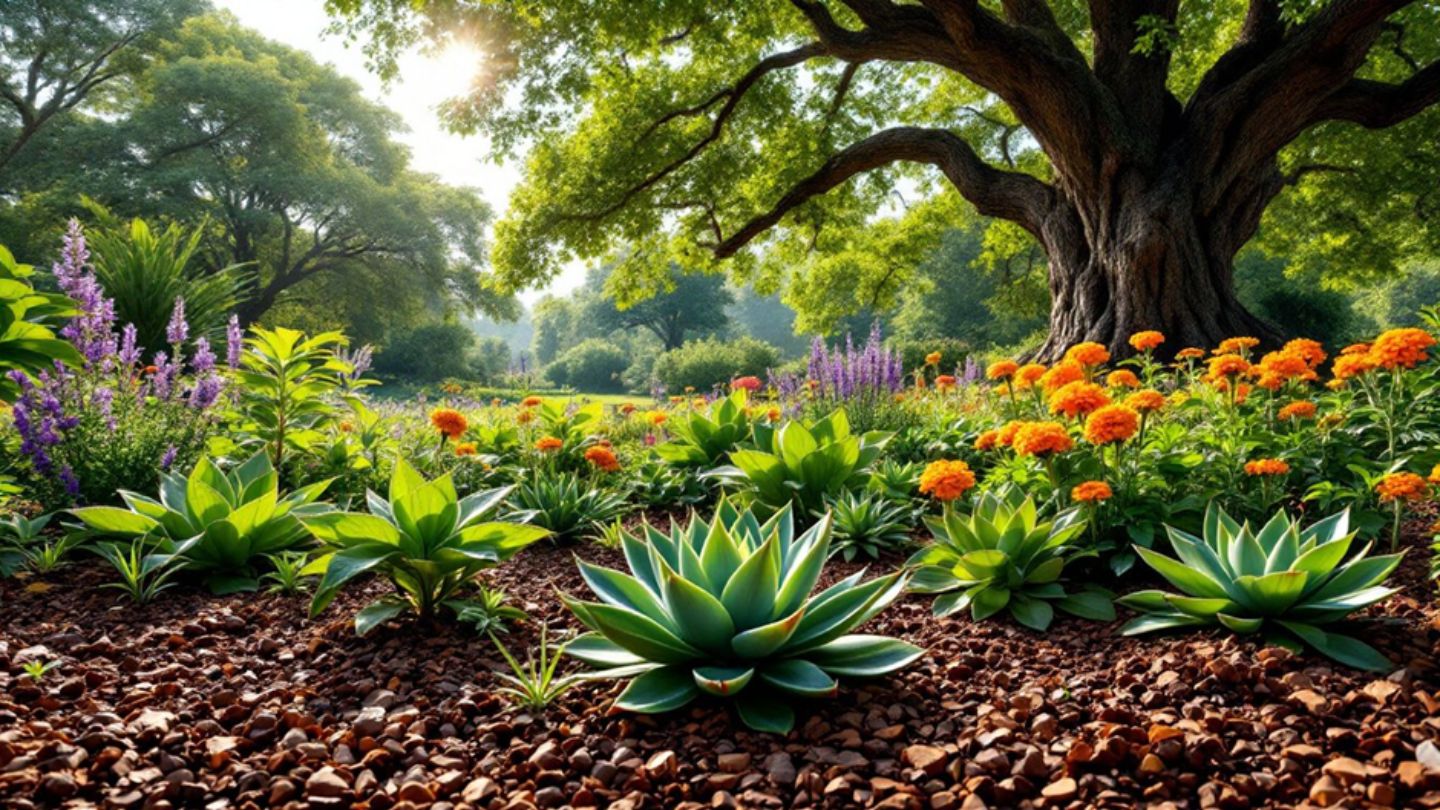
Individuals interested in alternative mulching options might consider cocoa bean shells and straws for their distinct advantages. The shell of the cocoa bean, which is used to make this type of mulch, possesses natural qualities that repel insects. It emits a delightful scent, enriching your garden’s ambiance while also serving as a deterrent against pests.
Straw mulch stands out for its capacity to retain moisture and suppress weeds effectively. Its lackluster appeal to insects makes it proficient at keeping unwanted garden invaders away. These innovative choices offer unique attributes that can enhance the conventional benefits provided by standard mulches such as cedar and cypress in your garden’s ecosystem.
Cocoa Bean Shells Mulch
Utilizing cocoa bean shell mulch can be highly beneficial for those tending a garden. The presence of theobromine within the shells deters insects naturally, thus providing an exceptional method for pest prevention. This type of mulch is adept at enhancing soil quality by boosting its drainage and aeration capabilities while also retaining moisture effectively to foster plant growth.
There exists a significant caveat: Cocoa bean shell mulch poses a toxicity risk to dogs if consumed. Gardeners with pets should exercise discretion when applying this particular kind of mulch in areas that pets frequent.
Nevertheless, given these precautions are heeded, the attractive fragrance, coupled with its insect-repelling attributes, renders cocoa bean shell mulch an invaluable asset for any gardening enthusiast’s arsenal.
Straw Mulch
Using straw mulch, which comes from straw, presents several advantages for garden enthusiasts. It is particularly adept at conserving soil moisture and suppressing the emergence of weeds within your garden beds, thus making it an excellent option for those tending to their gardens. Ensuring that the straw remains dry can greatly diminish the chances of pest infestation.
For optimal results in your gardening endeavors, distribute a uniform layer of straw mulch over your garden plots. This technique will aid in retaining moisture levels in the soil while concurrently managing weed growth and fostering an environment that discourages pests due to their dryness.
Integrating straw with different types of mulch can boost its effectiveness even more by providing a robust strategy against pests while still maintaining all other benefits provided by a protective layer on top of your soil.
Read More: Pine Straw vs Mulch: The Best Choice for Your Garden
Regular Lawn Maintenance
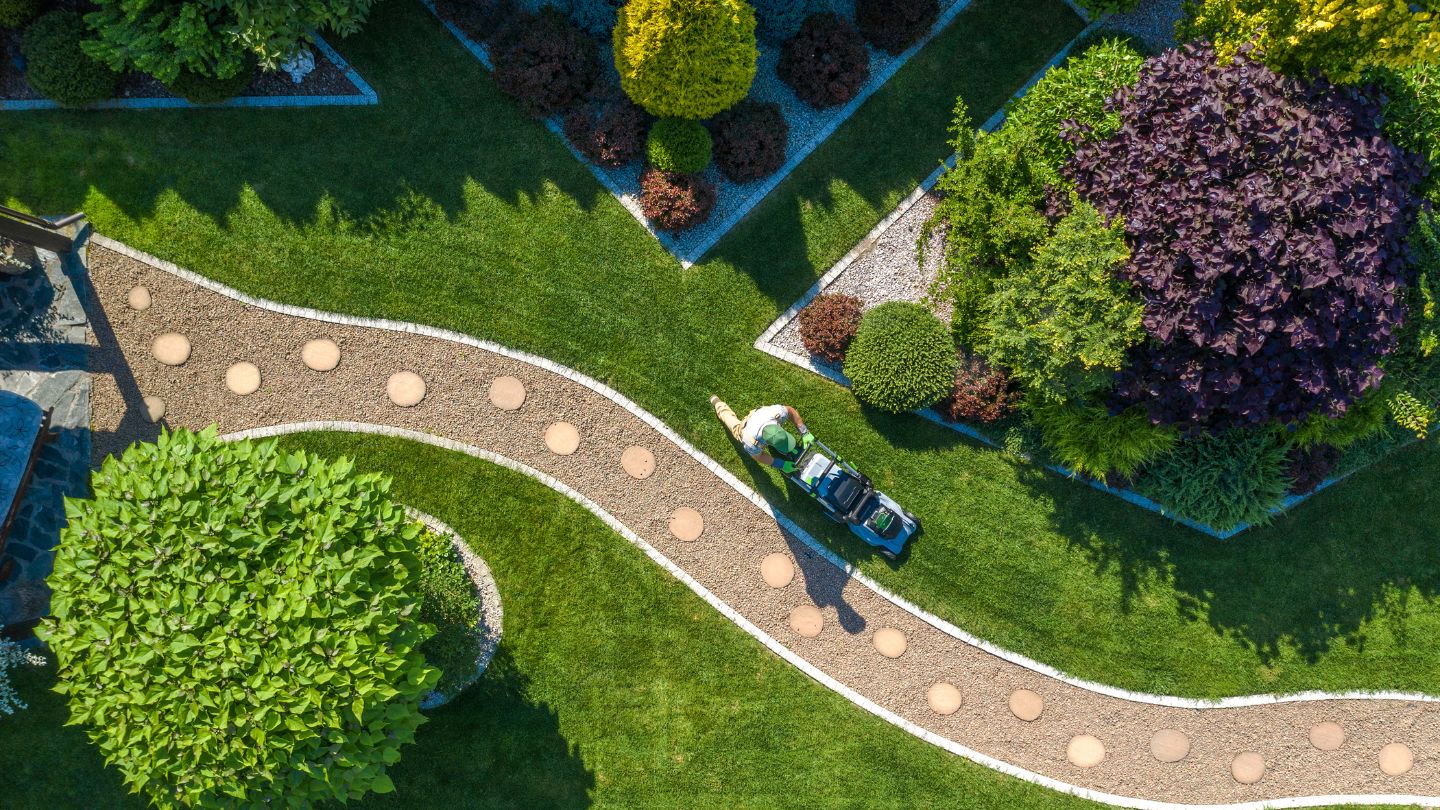
Maintaining your lawn consistently is essential for minimizing habitats that could harbor pests, thereby ensuring the vigor of your garden. Keeping the grass trimmed through routine mowing hinders excessive growth, which might otherwise become a fertile breeding site for unwanted pests. A neatly kept lawn diminishes the chances of drawing in bothersome insects.
Incorporating plants such as lavender and marigolds that are known to repel insects into your garden can enhance the effectiveness of regular mowing in controlling pest numbers. These aesthetically pleasing plants do more than just beautify. They actively ward off insects, fostering a more conducive environment for plant health on your lawn or ground area.
Final Thoughts on Choosing the Best Mulch for Pest Control
Selecting the right type of mulch plays a crucial role in keeping your garden pest-free. Options like cedar mulch, cypress mulch, and melaleuca mulch provide natural pest-repelling benefits, while innovative choices like cocoa bean shells and straw mulch add versatility. Pairing these with effective landscaping practices ensures your garden stays healthy, beautiful, and free of unwanted pests.
For high-quality mulch and other landscaping supplies in Cumming, GA, we’ve got you covered. Visit Mulch Pros Landscape Supply for all your landscaping needs. We are dedicated to providing the best products to help your garden thrive. Contact us today for expert advice and top-tier supplies to meet all your mulching and landscaping needs!
We proudly offer our services in Cumming, Johns Creek, Milton, Sandy Springs and Rosewell. Trust us to provide the ideal materials and exceptional service to enhance outdoor projects in these areas.
Frequently Asked Questions
What is the best mulch for repelling insects?
Cedar mulch is your best bet for keeping insects at bay, thanks to its strong scent and natural insecticidal properties. It’s a smart choice to protect your garden!
Are there any innovative mulches that also deter pests?
Absolutely! Cocoa bean shell mulch not only looks great but also naturally repels pests due to theobromine it contains. Plus, straw mulch is another fantastic option that insects typically avoid.
How often should I replenish my mulch?
You should replenish your mulch annually to keep it effective. This is particularly important for types like cypress mulch that degrade over time.
Can I use mulch in combination with other pest control methods?
Definitely! Using mulch alongside other methods like physical barriers and insect-repelling plants can enhance your pest control efforts significantly.


